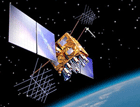Yesterday, the UK Royal Academy of Engineering published a report that the press release for it states:
“Society may already be dangerously over-reliant on satellite radio navigation systems like GPS... [given that the] range of applications using the technology is now so broad that, without adequate independent backup, signal failure or interference could potentially affect safety systems and other critical parts of the economy.”
The report titled, “Global Navigation Space Systems: reliance and vulnerabilities,” (see PDF here) was written by a group chaired by Dr. Martyn Thomas, CBE and Fellow of the Royal Academy, who is also a long time acquaintance of mine and an occasional commentator on the Risk Factor blog.
Quoting from the report’s Foreword penned by Martyn:
“Today, the relative ease of use of GPS in-car navigation systems means that many motorists rely entirely on GPS for navigation and if they have a road map as a back-up, it is not likely to have been used or updated in a long time. This is a trivial example of reliance on GPS with neglect of back-up systems, but the use of GPS signals is now commonplace in data networks, financial systems, shipping and air transport systems, agriculture, railways and emergency services. Safety of life applications are becoming more common. One consequence is that a surprising number of different systems already have GPS as a shared dependency, so a failure of the GPS signal could cause the simultaneous failure of many services that are probably expected to be independent of each other.”
Martyn makes the point that no one has a really good handle on how dependent society has become on the use of GPS systems today, or how this dependency will inevitably grow. He goes on to write in the foreword that:
“The European Commission has estimated that, already, 6-7% of GDP in Western countries, that is to say 800 billion euros in the European Union, is already dependent on satellite radio navigation.”
The US has roughly the same amount of economic dependency, by my estimate.
The Royal Academy report provides a nice primer on satellite navigation technology, its current and projected use, and its current vulnerabilities. For instance, severe solar storms pose one type of vulnerability.
GPS jamming—both intentional and unintentional—pose another and more interesting vulnerability to me.
Some US trucker drivers, for instance, have been illegally installing cheap, portable GPS jammers to keep their trucking companies from being able to track their whereabouts via the truck’s internal GPS system or the driver’s company provided cell phone, this recent AINonline article states. Unfortunately, the jammers’ signals have also apparently interfered with airport systems at Newark Airport as the trucks have passed nearby on the New Jersey Turnpike.
The AINonline article goes on to report that a proposed nationwide satellite-based voice and Internet data service being proposed by the company LightSquared could make the jamming interference from truckers look like mere mosquito bites in comparison.
There is also this post at GIZMODO yesterday that coincidentally discusses other examples of GPS jamming, and provides a link to a NASA white paper (see PDF here) published late last year that also warns of the “...increasing incidents of deliberate or inadvertent interference that render GPS inoperable for critical infrastructure operations.”
In addition, this Financial Times of London article covering the Royal Academy report notes that a “...powerful jamming device working from a tall building or balloon could knock out all GNSS [global navigation satellite systems] signals across southern England.”
And last year, I blogged about Gen. Norton Schwartz, US Air Force Chief of Staff, saying that the US military must lessen its dependence on GPS in the face of jamming threats and potential attacks on the GPS satellites.
The Royal Academy report outlines a number of recommendations to begin addressing the issue from increasing awareness of GNSS vulnerabilities to getting manufacturers (and users of GNSS technology) to think more about increasing the resilience of GNS systems themselves as well as developing back-ups systems.
One of the report recommendations states that the UK government:
“... should consider whether official jamming trials of GNSS Services for a few hours should be carried out, with suitable warnings, so that users can evaluate the impact of the loss of GNSS and the effectiveness of their contingency plans.”
Interesting idea. What do you think would happen to your organization—or to you personally—if you were to lose GPS availability for a few hours up to a few days?
Would it be a mere inconvenience, or would it have a major impact?
Robert N. Charette is a Contributing Editor to IEEE Spectrum and an acknowledged international authority on information technology and systems risk management. A self-described “risk ecologist,” he is interested in the intersections of business, political, technological, and societal risks. Charette is an award-winning author of multiple books and numerous articles on the subjects of risk management, project and program management, innovation, and entrepreneurship. A Life Senior Member of the IEEE, Charette was a recipient of the IEEE Computer Society’s Golden Core Award in 2008.



